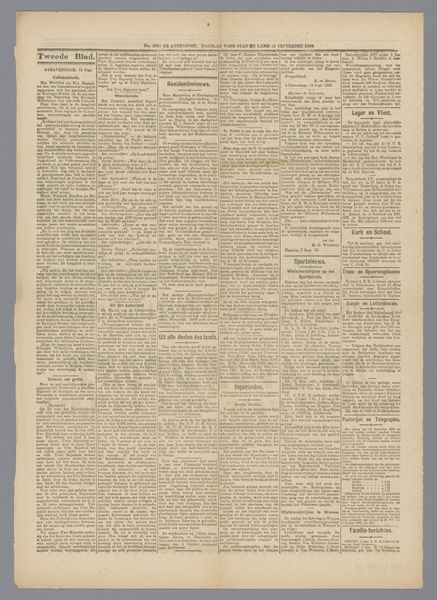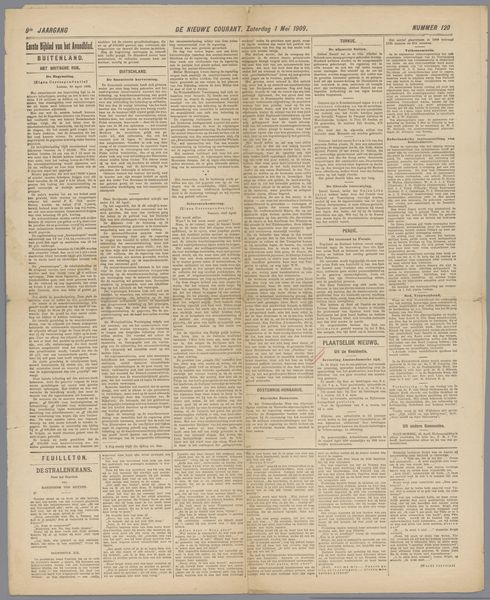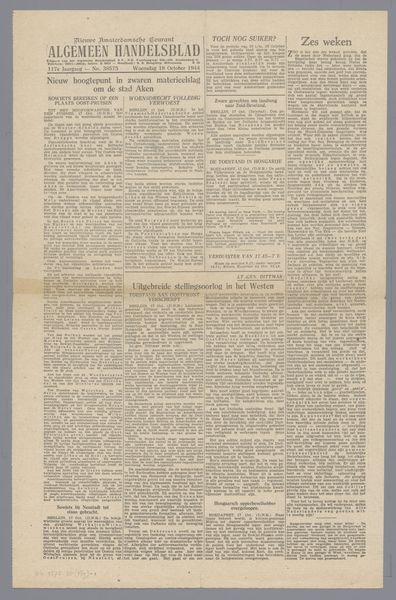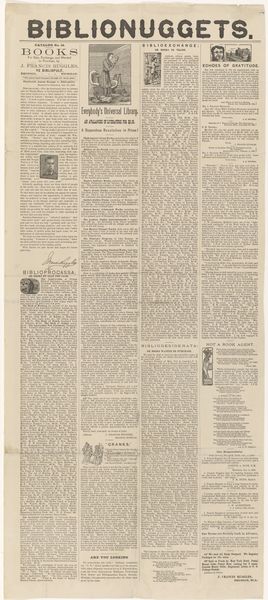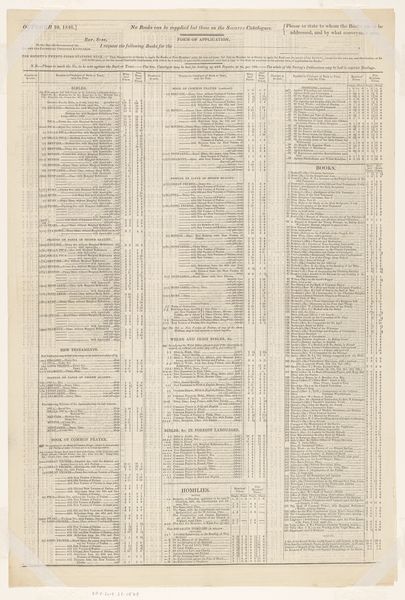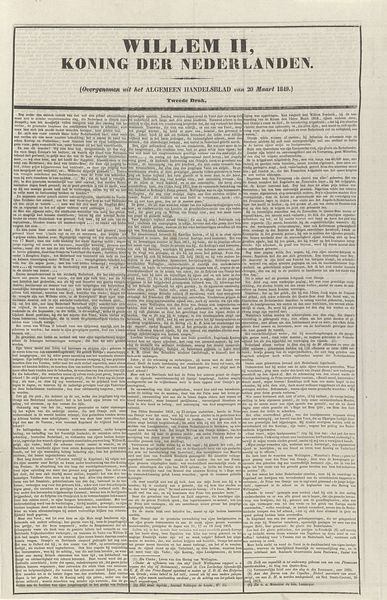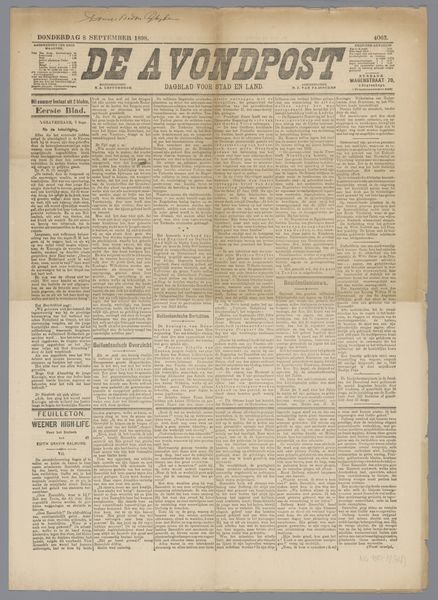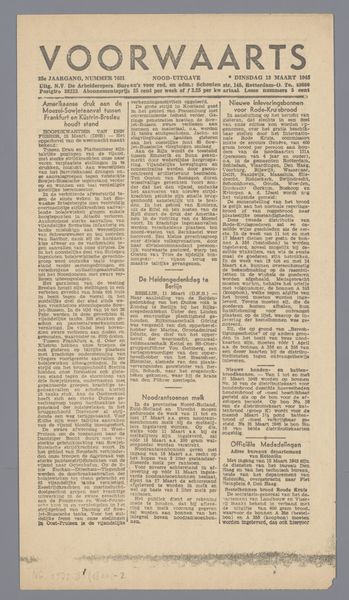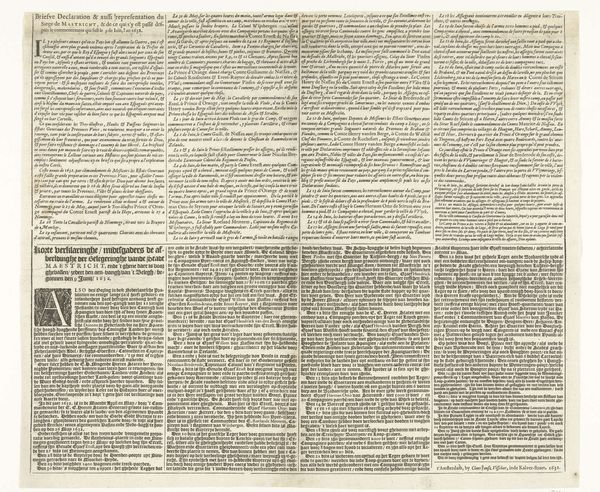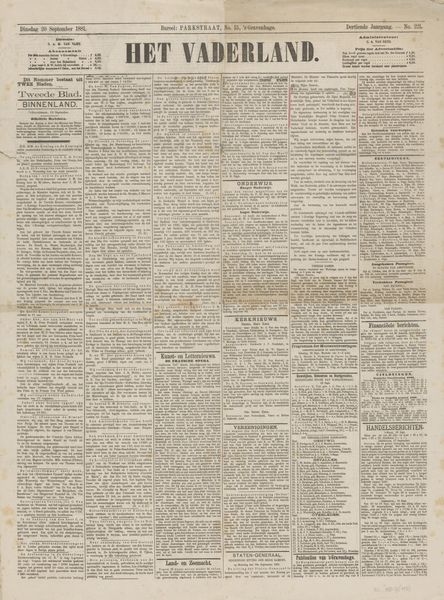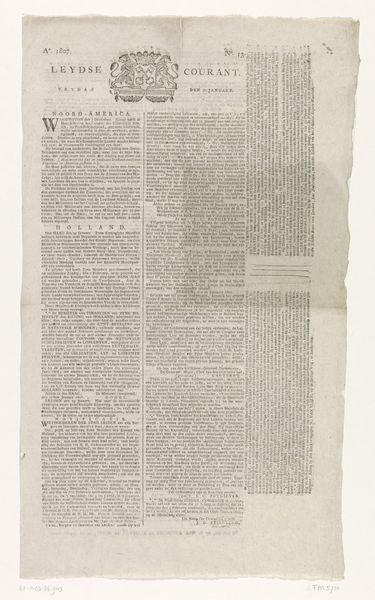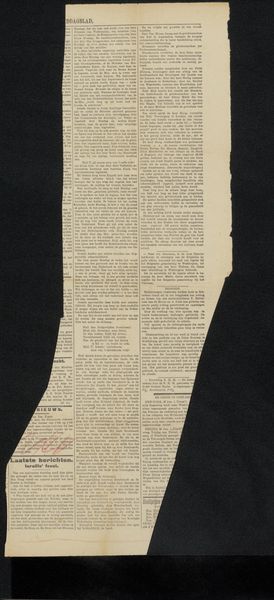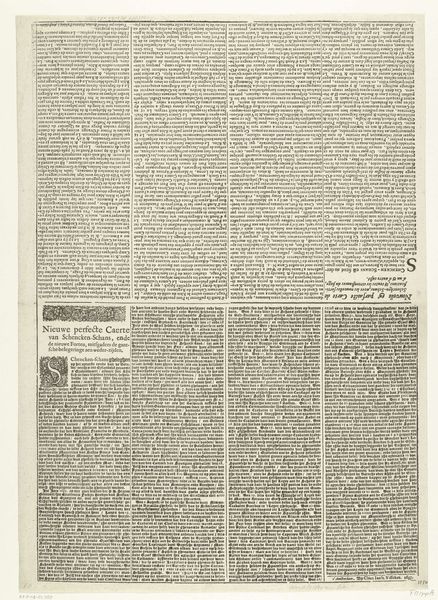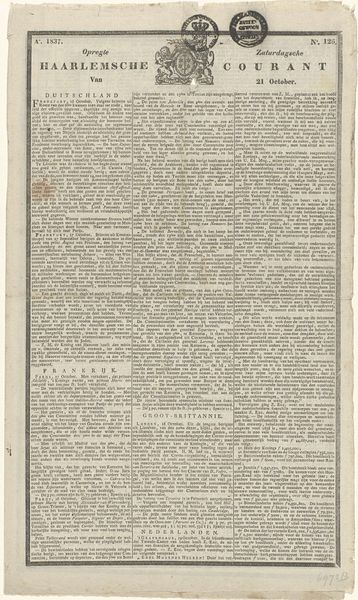
graphic-art, print, paper, photography, collotype, typography
#
graphic-art
#
dutch-golden-age
# print
#
paper
#
photography
#
collotype
#
typography
Dimensions: height 55 cm, width 39 cm
Copyright: Rijks Museum: Open Domain
Curator: What we have here is a striking piece of graphic art entitled "de Avondpost; dagblad voor stad en land," likely created around 1898-1899. It is held in the collection of the Rijksmuseum. Editor: At first glance, the work presents an interesting visual rhythm—a field of typography, differentiated through the balance of textures across the work's surface. The near absence of contrast yields an intriguing atmospheric depth... Curator: Indeed. It is a Dutch newspaper, "The Evening Post, Daily paper for city and country." Think about the socio-political landscape of the Netherlands at the turn of the century—the rise of industrialization, burgeoning social movements, and the construction of national identity in light of colonial exploits. This newspaper served as a conduit for public discourse and played a crucial role in shaping public opinion. Editor: Yes, the structural layout guides the reader's eye systematically through each section. Semiotically, we can look to its architecture to reveal the intentional hierarchy implicit in how information is displayed to the public. The very texture of the paper itself acts as a haptic aesthetic dimension to consider here. Curator: Absolutely, its materiality speaks to its accessibility. Newspapers like these shaped public sentiment during debates on labor rights, suffrage, and colonial policies. Who was being represented in these articles? Whose voices were absent? Editor: By focusing on typography, paper texture, and organization, we reveal its deliberate aesthetic choices. It transcends mere delivery; it possesses agency through material means. Curator: By analyzing its content, readership, and political affiliations, we start to understand this humble newspaper as an artifact laden with cultural meaning and impact. Its form, certainly, offers insights into function. Editor: It serves as a reminder of art's powerful connection to function, underscoring a holistic approach to artmaking. Curator: Precisely. Understanding how an artifact like this mediated public discourse unveils a fascinating historical cross-section.
Comments
No comments
Be the first to comment and join the conversation on the ultimate creative platform.
